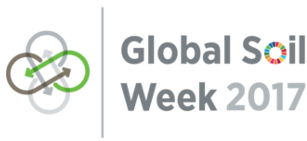Germany addresses soil and land within and beyond its borders at the opening of the International Year of Soils.
The impact of German and European demands on soils and land in a local and international context, and the resulting political responsibilities are the themes of this opening event of the UN International Year of Soils. With the title “Global Perspectives, Global Responsibilities” the event will take place on World Soil Day in Berlin on December 5, 2014. The public is invited to take part in the discussion opened by IASS Executive Director Klaus Töpfer, and EC Director-General, DG Environment, Karl Falkenberg. As 60% of the food consumed within the EU is produced on soils outside of its borders, the citizens of Europe have a significant impact on the soil and land resources globally. What are the responsibilities resulting from German demands on international soil and land resources? How can Germany meet these responsibilities?
To usher in the International Year of Soils, the Institute for Advanced Sustainability Studies (IASS Potsdam), together with the German Federal Ministry for the Environment, Nature Protection, Building and Nuclear Safety (BMUB), the German Federal Environment Agency (Umweltbundesamt), and the German Society for International Co-operation (GIZ) invite discussion and exploration of these questions. Not only will we have an honest look at the implications of land use within German borders, but also internationally in regard to the global effects of our demand for resources.
The International Year of Soils in 2015 is an important opportunity to increase knowledge and understanding about the importance of soil for food security, climate change adaptation and mitigation, essential ecosystem services, poverty alleviation, and sustainable development. More than 90% of global food production depends directly on soil. Soil stores carbon dioxide, nutrients, and water, and is crucial for biodiversity. Yet, we do not value soil very highly. Our consumption – not only of food but also of renewable resources like cotton, wood and biofuels – has major impacts on soils here in Germany and elsewhere. Yet, soil is a limited and threatened resource. Every year we lose around six million hectares of fertile soils worldwide as a result of unsustainable agricultural practices, contamination, and land take through construction activities and urbanization. At the same time, the demands placed on soil for food, feed, and renewable resource production is increasing as a result of population growth and changing consumption patterns.
Only healthy soils can secure our food supply and hence our future. For this reason, the UN Conference on Sustainable Development, Rio+20, acknowledged the importance of soils as a crucial resource and agreed on the goal of a land degradation-neutral world. To raise awareness of the importance of soil and encourage global action, the United Nations has declared 2015 the International Year of Soils. Effective political measures driven by responsible policy-making are crucial for positive change.
Join the discussion in Berlin during the German kick off event of the International Year of Soils 2015!
Download flyer for Opening of International Year of Soils in Germany

